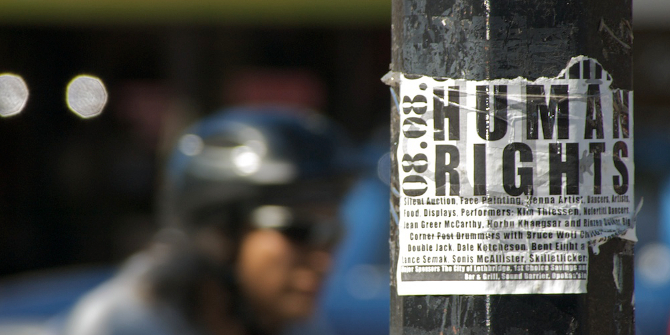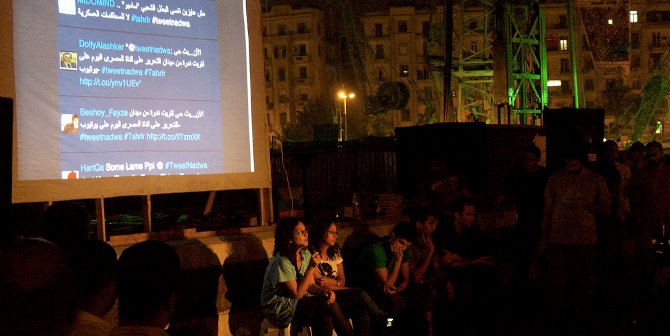 On Thursday 3 November, the Phelan US Centre hosted the public event ‘Viral Justice’ with Professor Ruha Benjamin. Cheyenne l’Auclair summarises the event, writing that Professor Benjamin’s work on Viral Justice shows how profound results can often be found in seemingly small actions.
On Thursday 3 November, the Phelan US Centre hosted the public event ‘Viral Justice’ with Professor Ruha Benjamin. Cheyenne l’Auclair summarises the event, writing that Professor Benjamin’s work on Viral Justice shows how profound results can often be found in seemingly small actions.
Professor Ruha Benjamin opened the discussion on her new book Viral Justice by epitomizing its message with a quote from author Octavia E. Butler: “All that you touch, you change. All that you change, changes you.” Ruha Benjamin is an award-winning writer, speaker, Professor of African American Studies, and director of the Ida B. Wells Just Data Lab at Princeton University. On November 3rd, she was joined by Chair Professor Peter Trubowitz, Professor of International Relations and Director of the Phelan US Centre at LSE in an event where she demonstrated the power of ‘viral justice’ to forge a more inclusive, welcoming, and just society.
The compounding crises of COVID-19 and anti-Black police violence sparked Ruha Benjamin to rethink the importance of small, individual actions in creating meaningful societal change. Through evocative poetry on life, love, and finding your fire, Professor Benjamin implores us not to underestimate the magnitude of individual action. It is this attention to seemingly microscopic actions with contagious effects that defines viral justice. Professor Benjamin argues a just society cannot be solely brought about by top-down law and policy change granted by those who monopolize institutional power. The markings of a healthy society run much deeper, in how we treat and value each other.
Professor Benjamin gives examples to illustrate how individual action has cascading community benefits. Los Angeles-based community activist Ron Finley created his own solution to residential segregation’s negative effects on access to fresh food in his community. By planting vegetables in the parkways of his neighborhood and fighting back against a citation for gardening without a permit, his actions led to changed laws and the proliferation of more than twenty urban gardens. With each additional person given access to free, fresh produce, a community of mutual support flourishes.
Additional examples come from students who organized demonstrations with attendance in the thousands after the murder of George Floyd, and students who campaigned for a now annual course at Princeton High School on Racial Literacy. In Seattle, residents focused on nearly microscopic changes in the city budget have been successful in improving housing, sustainability, public transport, and more for their community. These examples embody Professor Benjamin’s call for concerted small-scale initiative rather than biding time for top-down change.
Professor Benjamin shifts her focus to technology, which she has spent years researching as it relates to race, justice, and structural change. Here she discusses Breonna’s Garden to demonstrate use of technology for solidarity and healing after the murder of Breonna Taylor. Breonna’s Garden is an augmented reality experience created by Lady PheOnix in collaboration with Taylor’s family. By creating a shared space online to gather, grieve, and heal, the project aims to honor Breonna’s legacy and move from pain to purpose. Such examples illuminate justice and healing beyond the typical venues. Why wait for others to demolish barriers to progress and architect the future? As Professor Benjamin has shown, individuals have the power to foster supportive communities which lay the foundation for a more just society.
An equally illuminating question and answer session followed with worldwide discussants. Professor Peter Trubowitz mentioned Rosa Parks as an example of the power of one individual’s actions. Her actions were made possible in part by the groundwork of the NAACP, where she was a secretary, highlighting the interplay of individual and organized change.
In responding to questions on creating change and overcoming structural inequalities in technology and education, Professor Benjamin emphasized the importance of being aware of power dynamics and uplifting voices not traditionally amplified. Professor Benjamin also explained that in writing the book as part memoir, part manifesto, she aimed to demonstrate by example how everyone can reflect on their experiences to identify their role in creating viral justice. In seemingly small actions, we find profound results.
- Listen to a podcast of the event [LSE Player]
- Featured image: Photo by Cody Pulliam on Unsplash
- Note: This article gives the views of the author, and not the position of USAPP – American Politics and Policy, nor the London School of Economics.
- Shortened URL for this post:https://bit.ly/3gNKCII






